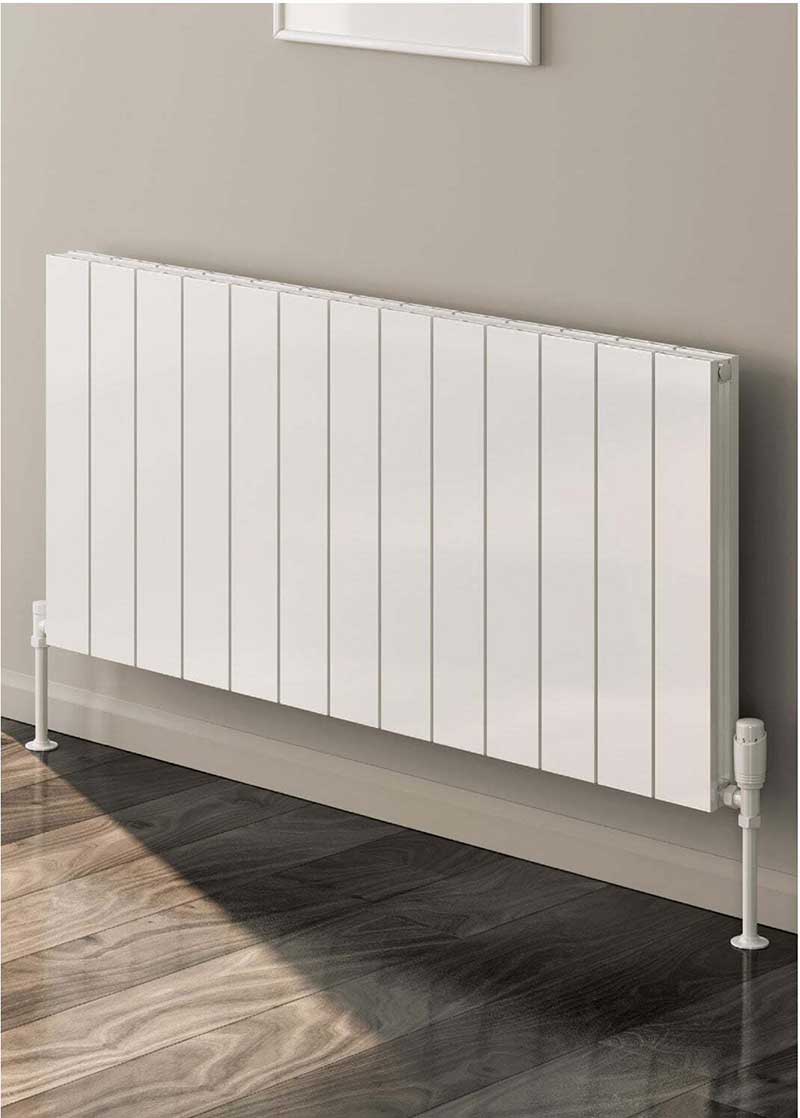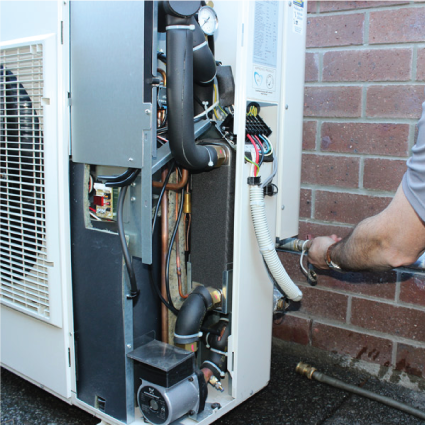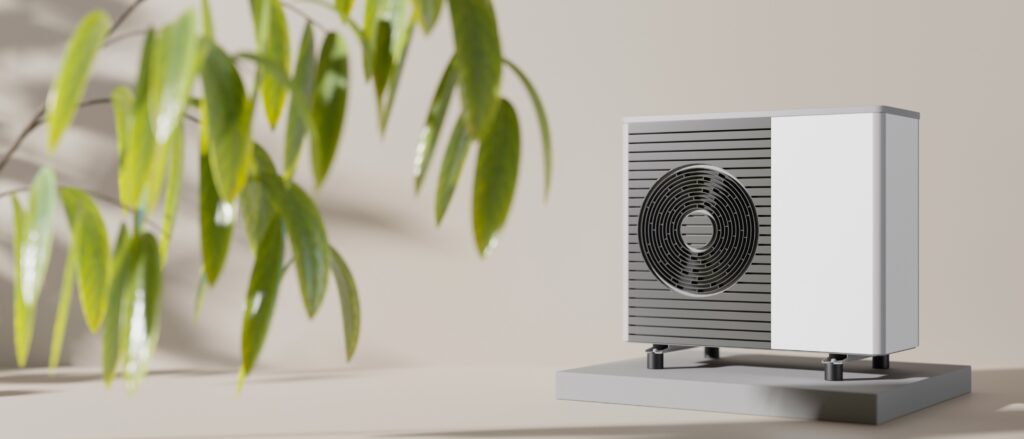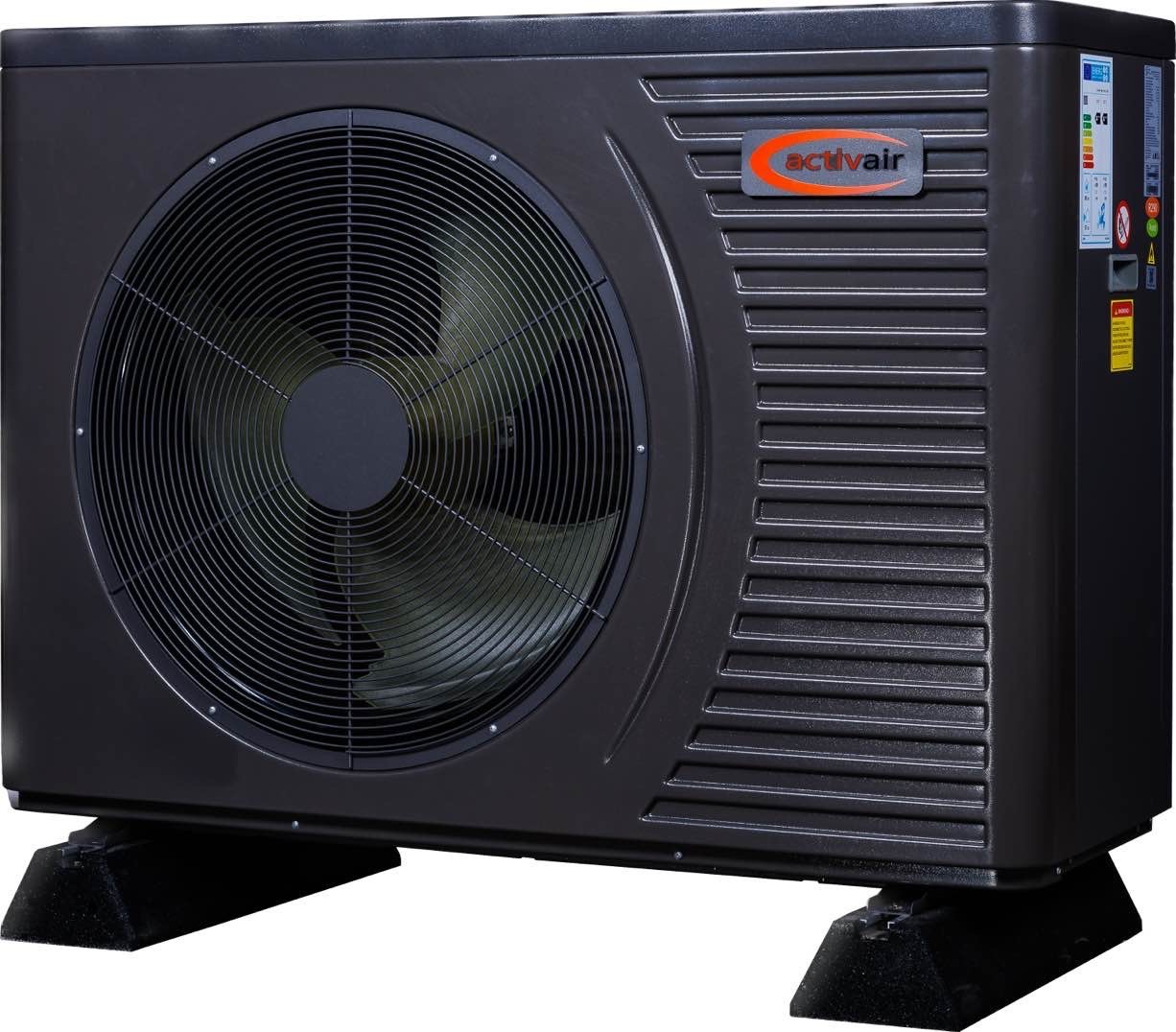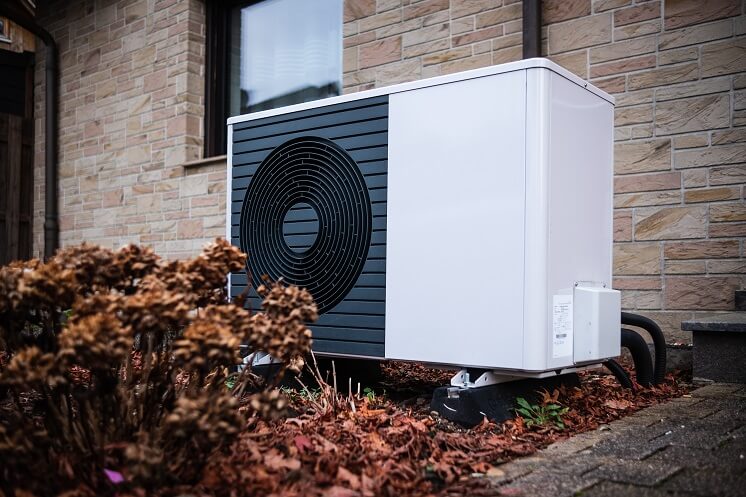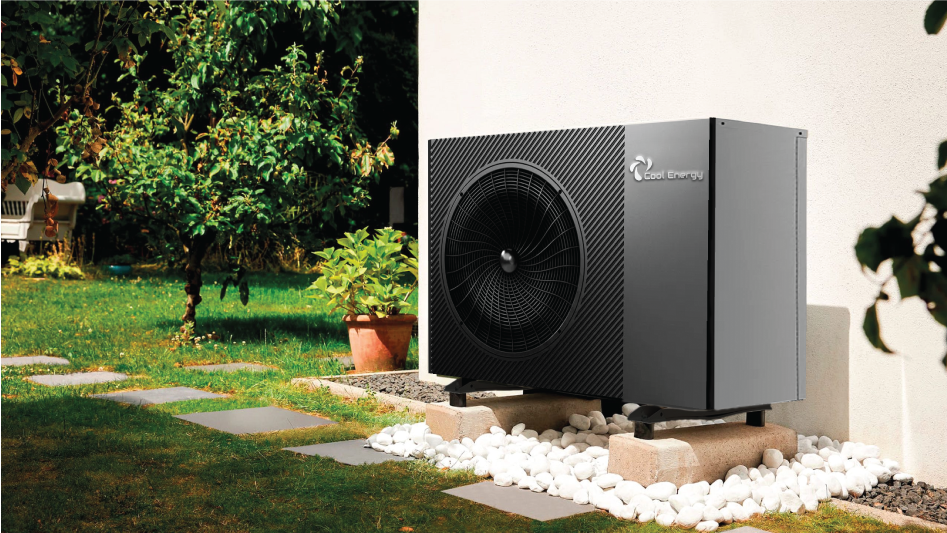- Air source heat pumps work at temperatures as low as -25°C
- Heat pumps are still three times more efficient than boilers when it’s below 0°C
While the initial investment for heat pumps may be slightly higher compared to certain alternative heating methods, they possess the capability to convert electricity into three times the amount of heat. Air source heat pumps operate by extracting warmth from the surrounding air, typically located just outside your home. However, concerns may arise during winter when temperatures plummet. This guide elucidates the resilience of heat pumps in cold weather, offers insights on when to be vigilant, and provides recommendations to prevent freezing during winter months.
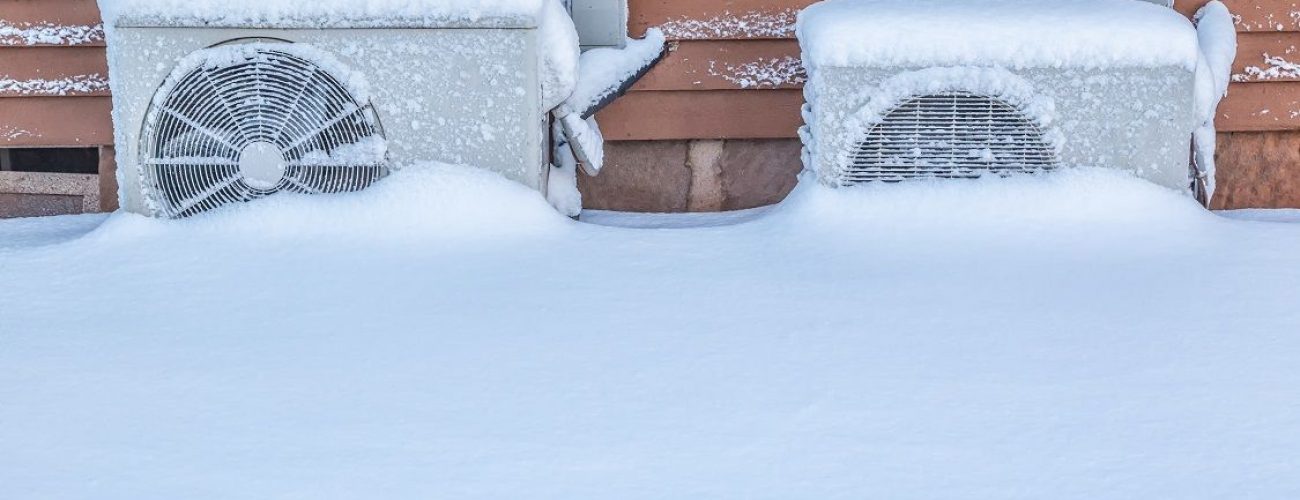
What's on this page?
Can an air source heat pump work in cold weather?
Air source heat pumps remain operational even in cold weather, and in some instances, they can operate in temperatures as low as -25°C.
These pumps extract warmth from the rapid movement of atoms and molecules in the air. This warmth persists even when the temperature drops below freezing.
Warmth is inherently present in all air with a temperature higher than absolute zero (-273.15 °C) because atoms and molecules continue their motion through the air until that point.
Despite the advancements in heat pump technology, it hasn’t reached the point of extracting heat at absolute zero. However, considering that the coldest permanently inhabited place on Earth, Oymyakon in Russia, experiences temperatures of -47°C at the time of writing, perhaps aiming for absolute zero isn’t a practical target.
Are heat pumps less efficient when it’s cold?
Air source heat pumps typically experience a decrease in efficiency as temperatures drop, requiring more energy to extract warmth from the air. The challenge arises when there is a diminished amount of warmth available in the air, demanding increased effort in the extraction process.
However, these heat pumps begin with a notable advantage, boasting an average efficiency range of 300% to 400%. In practical terms, a heat pump operating at 300% efficiency produces three units of heat for every unit of electricity consumed, a performance three times superior to that of a gas boiler.
As temperatures decrease, the efficiency rate may decline to around two units, particularly when the temperature drops below 0 degrees Celsius (°C). The efficiency of a heat pump is quantified using a metric called the ‘coefficient of performance’ (CoP), calculated by dividing the heat output by the energy input.
To offer a clearer perspective on efficiency, a heat pump with a CoP of around 3 at 0°C is operating at 300% efficiency. In essence, the higher the CoP, the more efficient the heat pump is in converting energy to heat.
The table below shows how the average air source heat pump’s efficiency changes based on the outside temperature:
| Outside Temperature | Coefficient of Performance (CoP) |
|---|---|
| 15 °C | 4.3 |
| 13°C | 4.1 |
| 10°C | 3.9 |
| 7°C | 3.7 |
| 4°C | 3.3 |
| 2°C | 3.1 |
| -1°C | 2.9 |
| -4°C | 2.6 |
| -4°C | 2.5 |
| -9°C | 2.4 |
| -12°C | 2.3 |
You can make your heat pump more efficient with regular maintenance, and by ensuring it has no exposed pipework.
What is the best weather for a heat pump?
Air source heat pumps demonstrate optimal performance in warmer weather conditions, capitalizing on the abundance of heat in the air for efficient home heating.
In regions with higher temperatures, the preference often leans towards air source models rather than ground source heat pumps. This choice allows homeowners to fully harness temperatures exceeding 20°C, maximizing the effectiveness of the heat pump.
The best heat pumps for cold climates
The majority of air source heat pumps are engineered to operate effectively in freezing conditions, with functionality extending down to at least -10°C.
This level of performance proves ample for the needs of most customers in the UK. Remarkably, certain heat pump models can continue to provide warmth to your home even in extremely low temperatures, reaching as far as -25°C.
It’s worth noting that the UK has encountered temperatures lower than -25°C on just four occasions, with the last instance recorded in 1995. Therefore, any of these models should suffice for your requirements.
Are hybrid heat pumps better for winter?
Consider opting for a hybrid heat pump if you reside in a poorly insulated home that faces challenges in retaining warmth during winter.
In a hybrid system, the boiler component functions as a backup to the heat pump when it encounters difficulties in heating the home during extremely cold weather. Despite this, the heat pump is expected to contribute approximately 80% of the overall heating capacity.
Nevertheless, for the majority of homes in the UK, enhancing insulation and replacing smaller radiators with larger ones can render them suitable for a standard heat pump without the need for a hybrid system.
Are heat pumps popular in cold countries?
Heat pumps have gained immense popularity in cold climates. In fact, the leading four European nations in terms of heat pumps per person—Norway, Sweden, Finland, and Estonia, respectively—are among the coldest regions on Earth.
Remarkably, in Norway, where the average winter temperature is -6.8°C, an astonishing one in four people own heat pumps.
The European nations demonstrating the swiftest adoption of heat pumps include Lithuania and Poland, both of which experience frigid temperatures often dropping below freezing.
Can your heat pump freeze in winter?
During winter, your heat pump has the potential to freeze, but its defrost mode should automatically engage to prevent the spread of ice throughout the system.
If this fails to occur, it indicates a malfunction. Possible causes include malfunctioning sensors, low refrigerant levels, or obstruction of the heat pump’s vents by leaves and debris.
To address this, replenish the refrigerant, ensure the vents are unobstructed, and inspect the sensors. If the machine remains frozen after a few hours, it is advisable to contact the heat pump’s manufacturer.
It is essential to confirm that the heat pump is genuinely frozen. If it is merely covered with snow and ice, this is normal and should not impact its internal functionality.
Do you need a cover for your heat pump?
Having a cover for your heat pump is not always essential, and there is ongoing debate about the effectiveness of these covers.
Proponents of heat pump covers argue that they shield the external unit from harsh weather conditions, including strong winds or heavy snow. Additionally, a cover might potentially decrease the likelihood of a heat pump freezing during the winter months.
How do I know if there’s a problem with my heat pump in winter?
To identify potential issues with your heat pump during the winter, pay attention to specific warning signs.
Insufficient heat production or the emission of cold air – this could be attributed to ice accumulation on the outdoor unit, but it may also signify problems with the compressor, a valve, or the refrigerant.
Persistent ice build-up – Heat pumps undergo periodic defrosting by heating their exterior coils. If ice consistently accumulates, it may indicate issues with the controls, the fan, or a low refrigerant level.
Substantial increase in energy bills – While it’s typical for energy costs to rise in winter, a significantly higher spike could indicate that your heat pump is overworking. This might suggest an improperly sized unit for your home.
Summary
Your air source heat pump should continue to operate effectively even in cold weather.
Nevertheless, it’s important to note that as temperatures decrease, your energy bills may increase because the pump works more rigorously to provide the same level of heat.
Heat pumps consistently demonstrate a minimum of three times greater efficiency than gas boilers throughout the entire year.
To harness this heightened efficiency, simply complete our form. Share a few details about your home, and our expert installers will contact you with free quotes.
Find out how much a heat pump would cost you
Complete A Short Form – Receive Free Quotes – Compare & Save
Find out how much a heat pump would cost you
Complete A Short Form – Receive Free Quotes – Compare & Save



